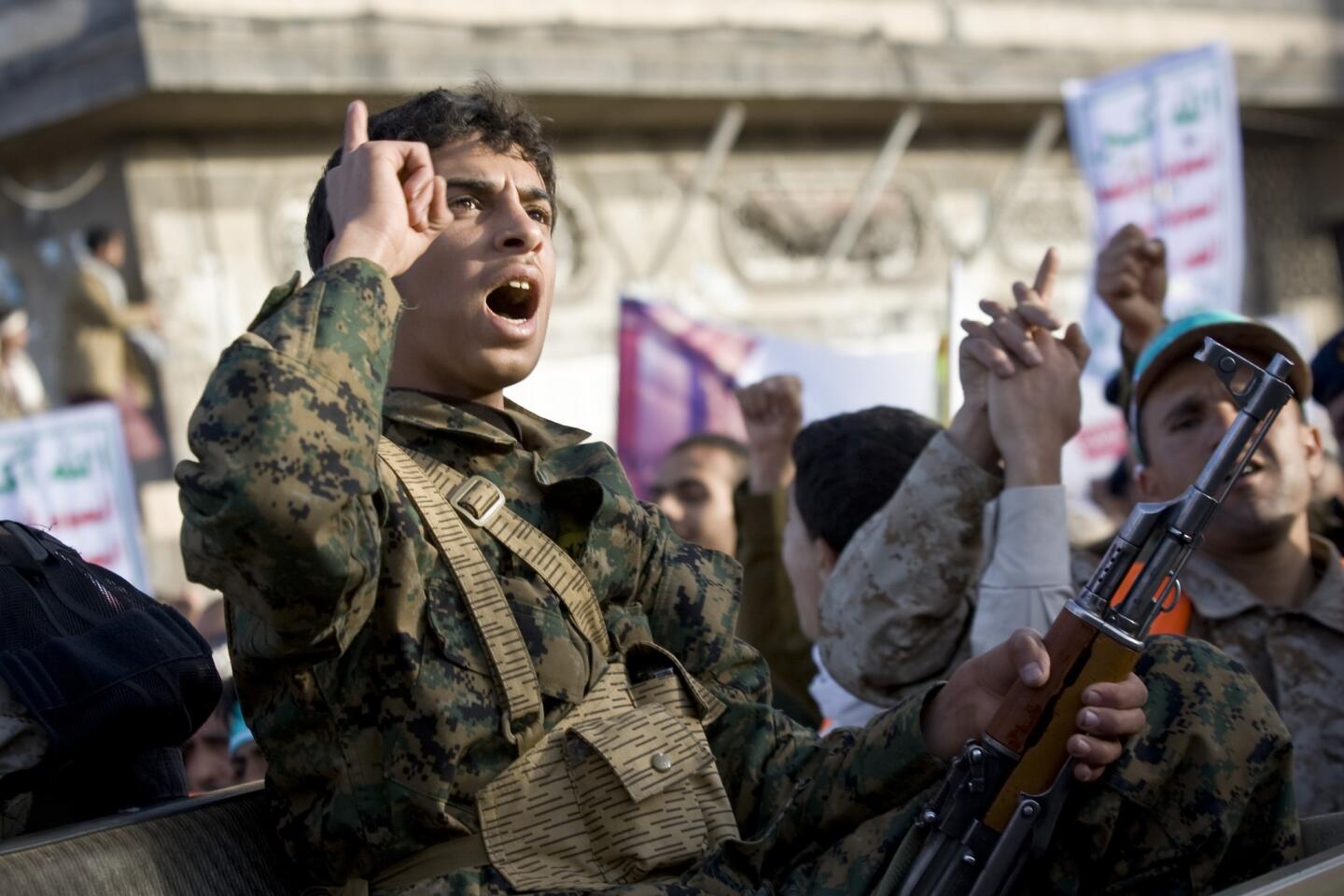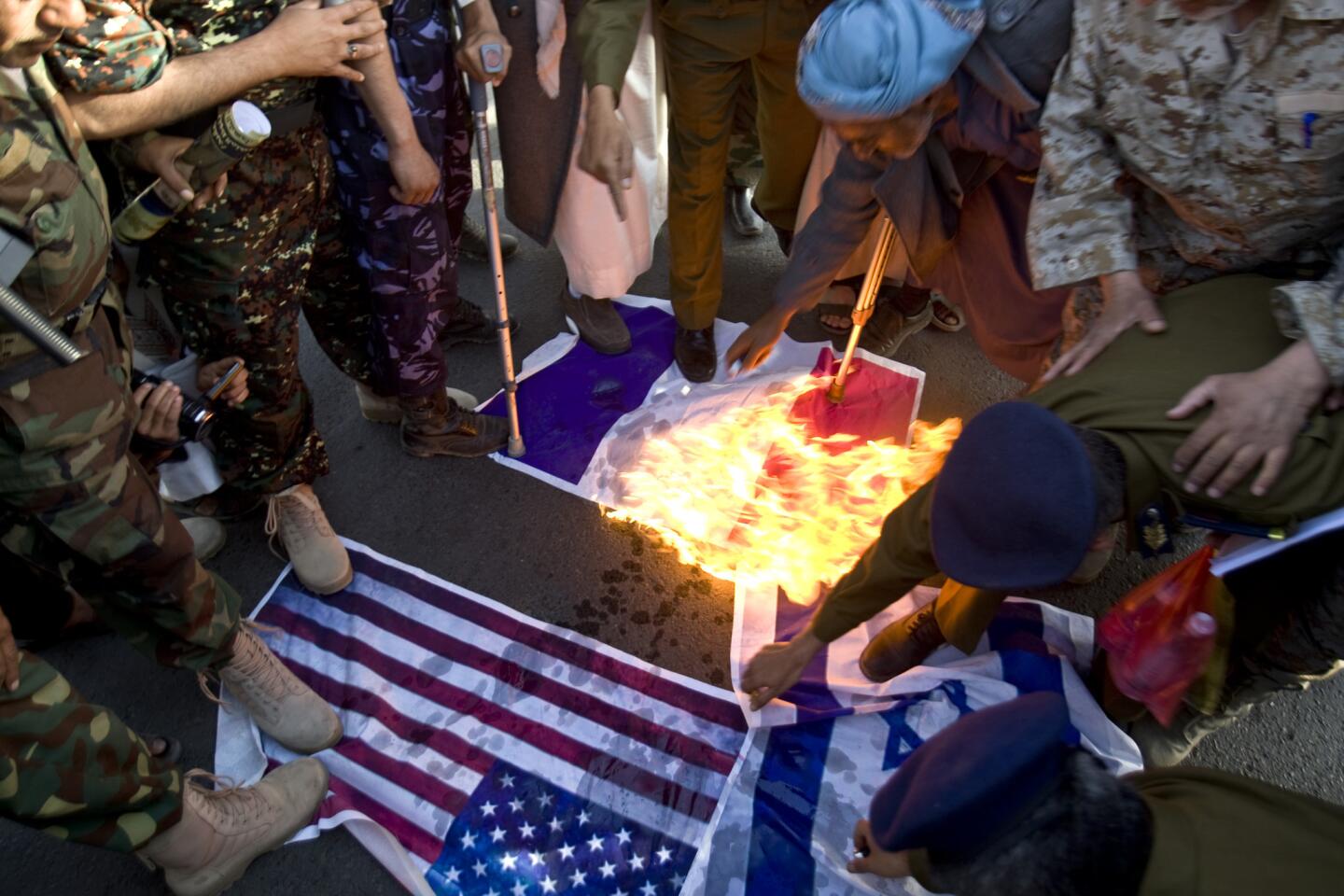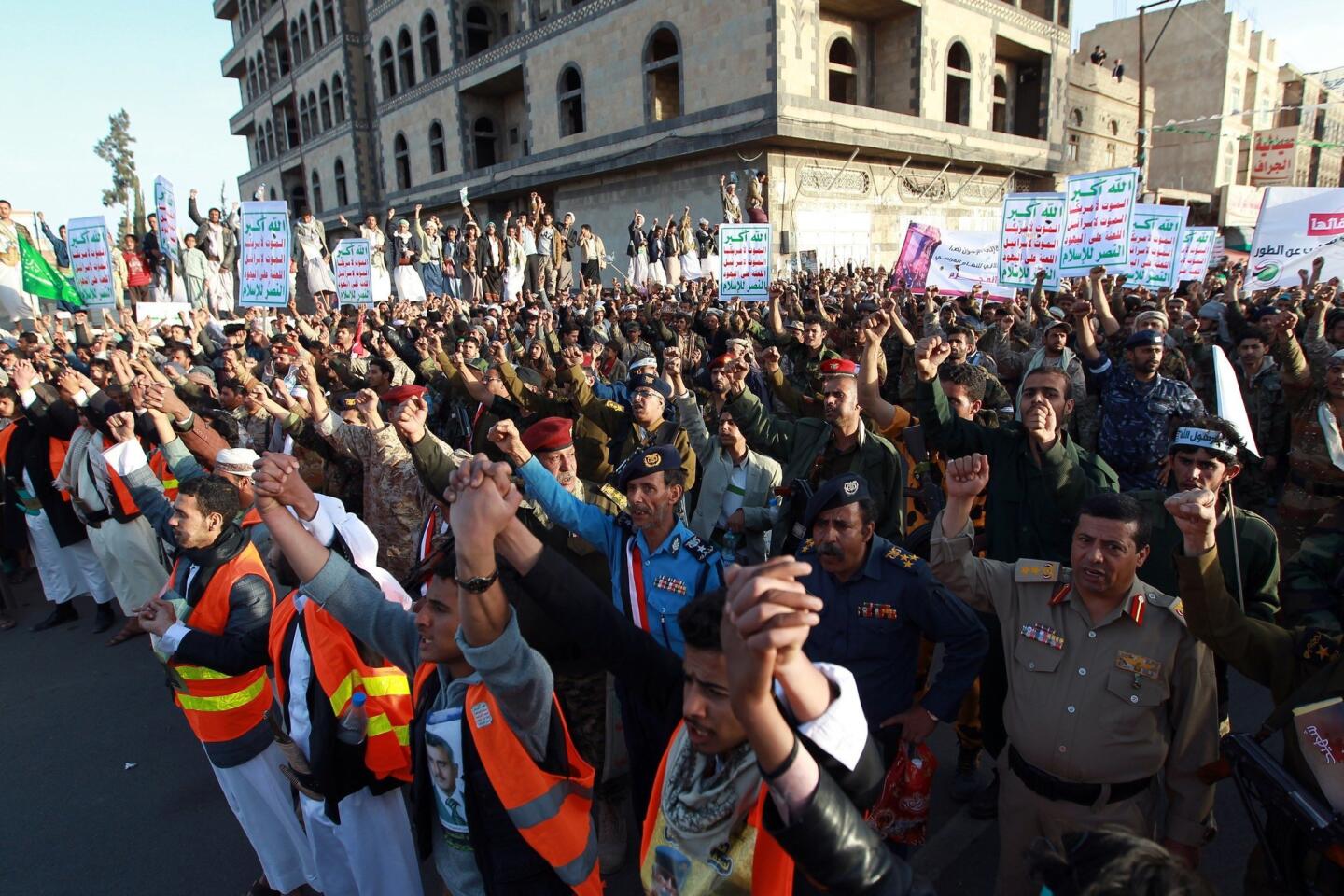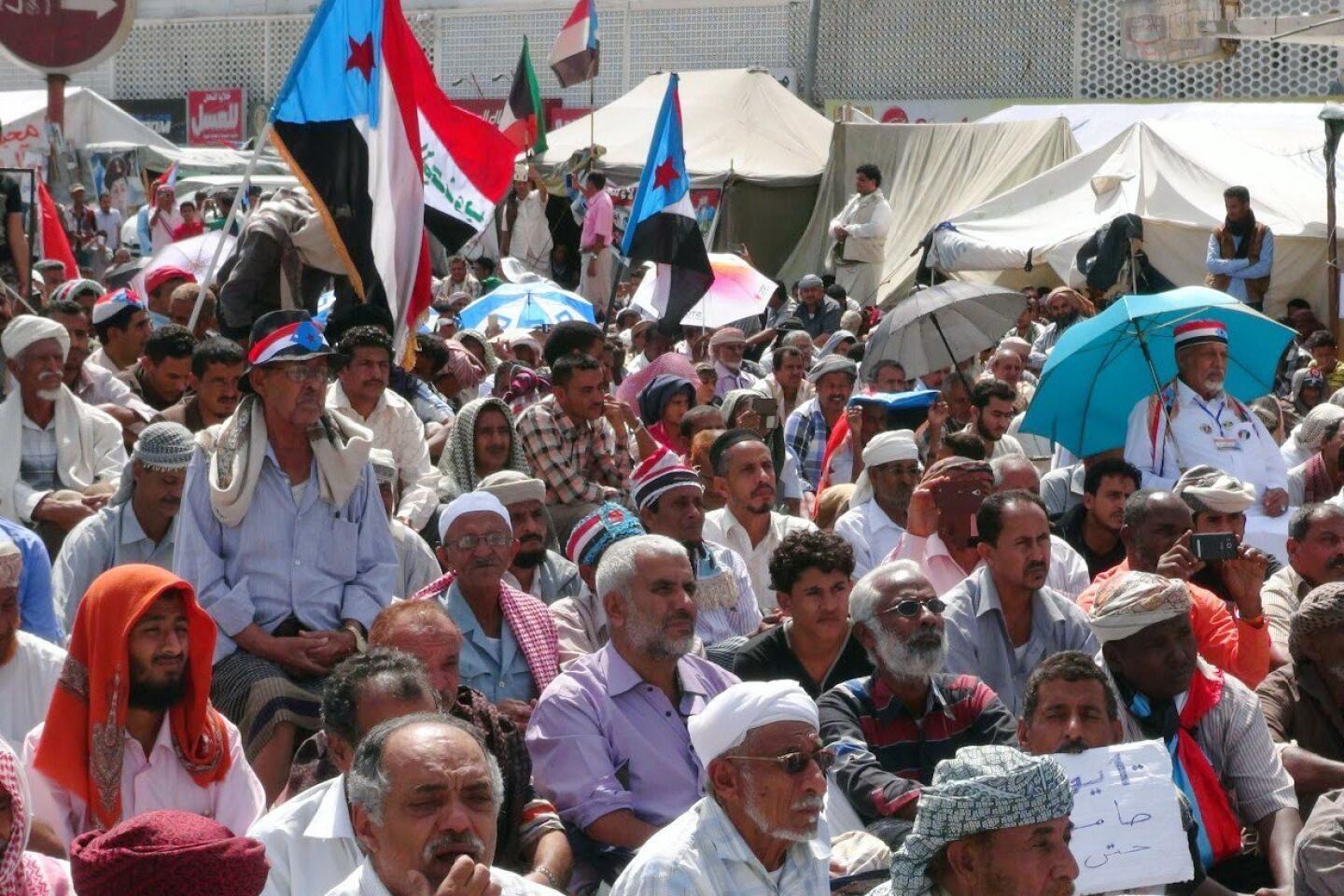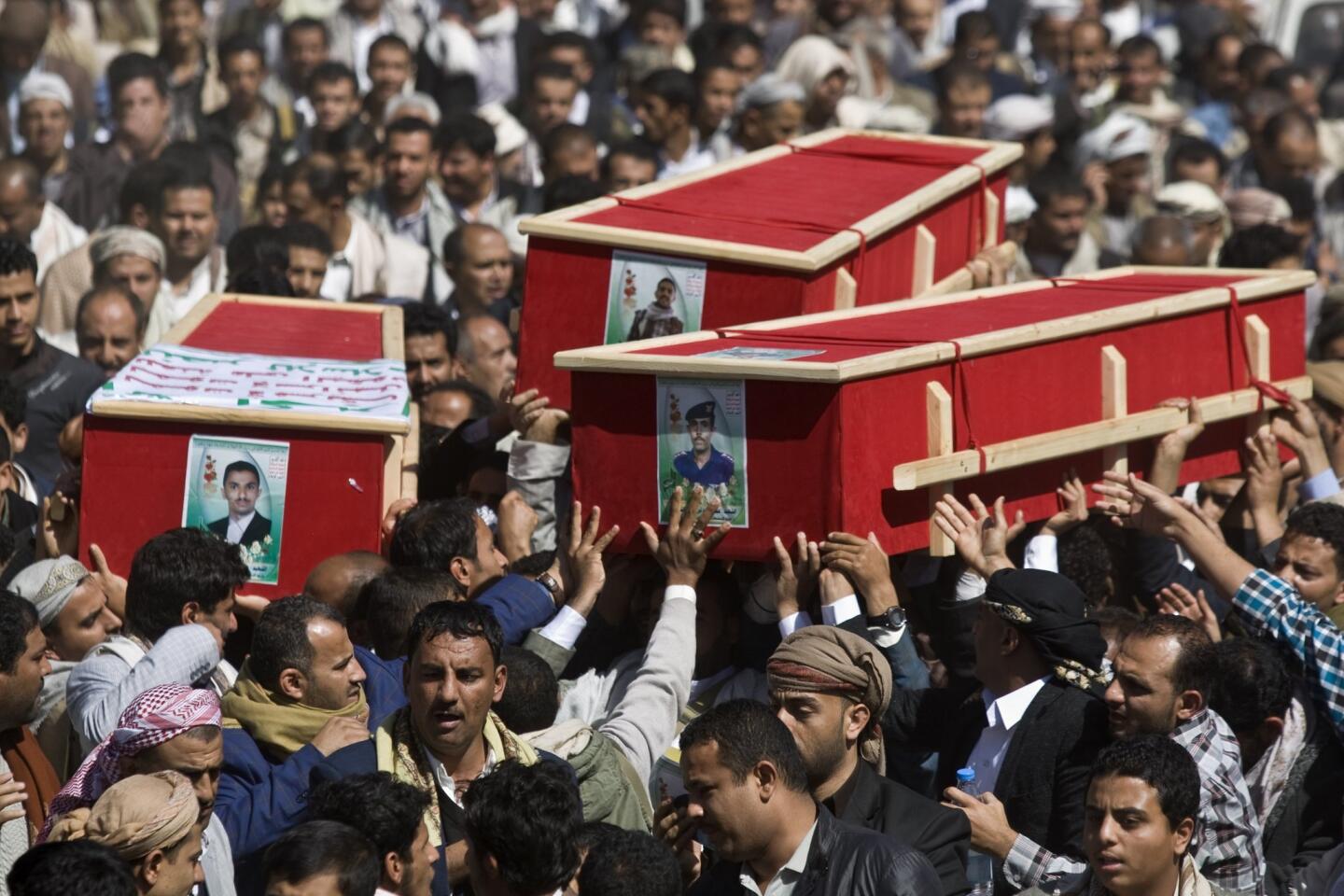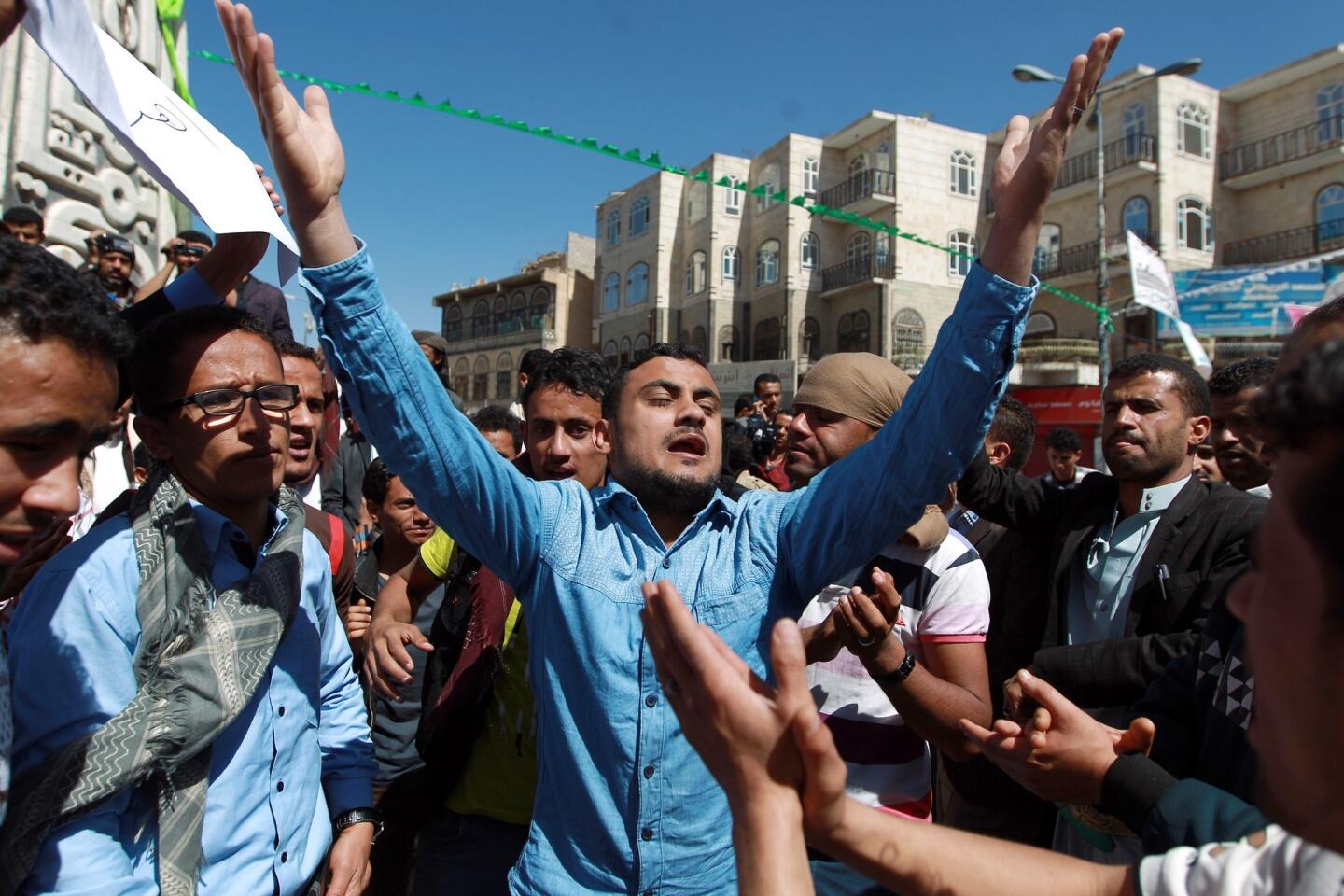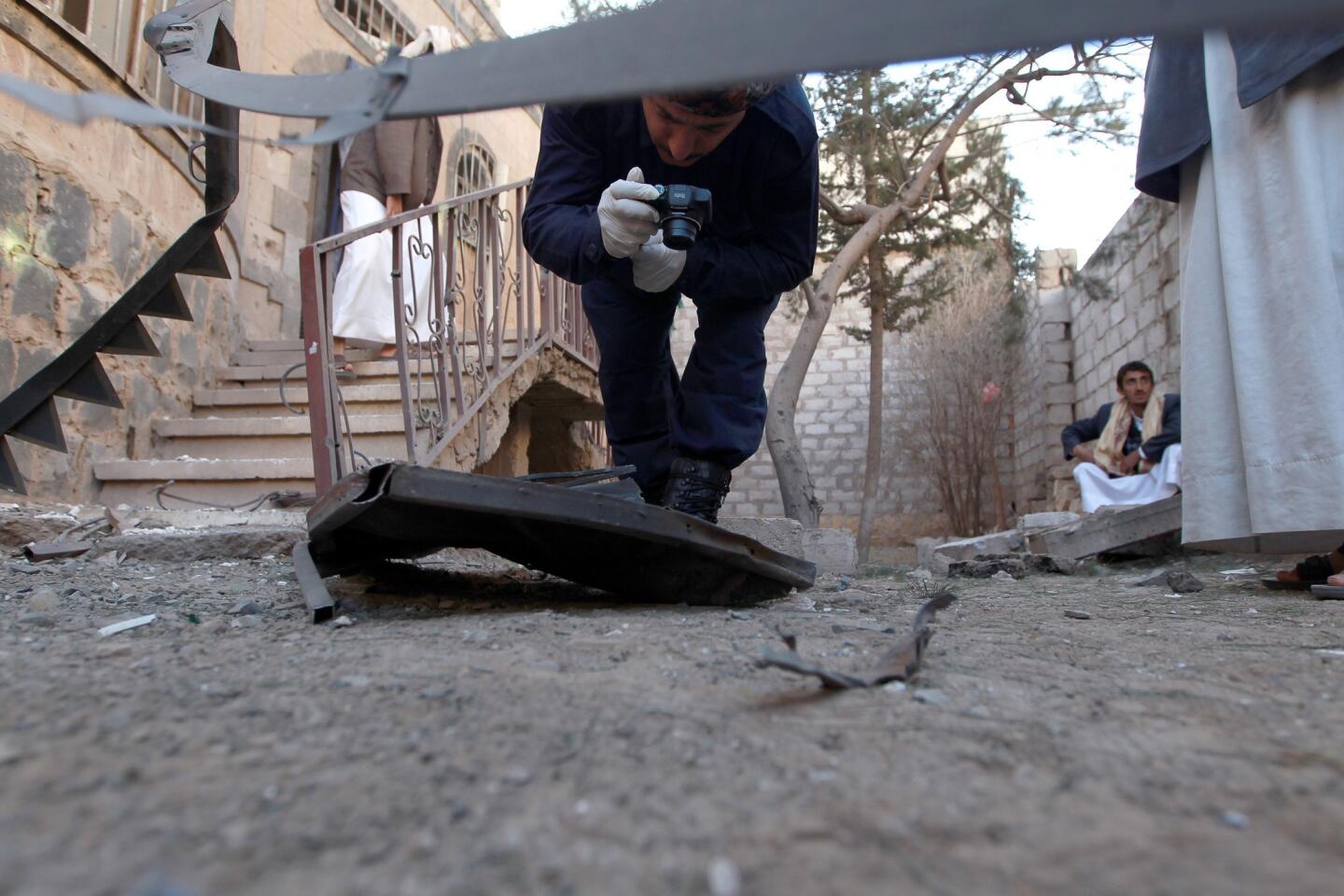Houthi foes and supporters protest amid chaos in Yemen
- Share via
Reporting from Sana, Yemen — Yemen faced a dangerous power vacuum Friday as supporters and opponents of Houthi rebels who have seized control of the capital took to the streets.
Rival rallies were held in Sana a day after the stunning resignation of President Abdu Rabu Mansour Hadi and his Cabinet.
The U.S.-backed president stepped down after Houthi rebels, who seized the capital in September, surrounded the presidential palace and residence this week after two days of clashes in Sana. A power-sharing deal between the government and the Houthis fell apart a day after it was agreed upon.
Hadi, humiliated and a virtual prisoner in his home, said he had had enough and apologized for failing to steer Yemen toward stability. It remained unclear who would take his place at the helm of this strategically situated nation, a key ally in U.S. counter-terrorism efforts.
Many Yemenis voiced fear that the deeply divided nation would fragment.
“Unfortunately, what we have in Yemen is completely vague and unclear,” said Omar Saggaf, 30, a university student. “I feel like I am living in a great dilemma.... I do not even feel secure inside my house, anything can happen.”
In Sana, two explosions apparently targeting Houthi leaders were reported, though there were no injuries.
In southern Yemen, the chaos prompted some to renew calls for secession and the creation of an independent state. North and South Yemen were separate nations until 1990. There were scattered reports of violence in the south, where the Houthis have little support.
Many Yemenis cite what they call growing polarization evident among fellow citizens.
“I see the future as very dark,” said Shereen Makawi, a hospital worker in Sana. “I blame all the political sides that did not put the country’s interests before everything else.”
Yemen has suffered from political turmoil and periodic violence in recent years. The country shares more than 1,000 miles of border with Saudi Arabia, a key U.S. partner in the region, and also abuts strategic shipping lanes in the Red Sea and Gulf of Aden.
The Yemeni parliament is scheduled to meet Sunday to consider the president’s resignation. Legally, the lawmakers can accept or reject the president’s decision. Even if the parliament rebuffs the resignation, however, it is not clear whether Hadi would agree to remain in office. His resignation could lead to an interim president and new elections, according to Yemeni law.
The official Houthi position on the president’s departure and how to fill the leadership void was also opaque, suggesting that the resignation may have caught the group off guard.
Many observers say the Houthis, a minority in Yemen, would prefer to work behind the scenes and not control the fractious country directly. Houthi leaders have described the administration of Hadi — who was elected in unopposed balloting in 2012 — as corrupt and beholden to foreign interests.
The Houthis, based in the country’s north, are mostly adherents of a Shiite Muslim sect that accounts for about a third of the nation’s 26 million people. Most Yemenis are Sunni Muslims.
But the Houthis have emerged as the country’s best-organized and most-powerful military and political bloc. Houthi leaders have vowed to reduce corruption and improve standards of living in the long-impoverished nation, where hunger remains a serious problem. Some say the Houthis have also formed an alliance with former President Ali Abdullah Saleh, the strongman ousted after “Arab Spring” protests broke out in 2011.
The Houthis are archenemies of Al Qaeda, a Sunni Muslim group, which has a strong presence in Yemen. Suspected Al Qaeda militants in Yemen have been major targets of the U.S. drone war. But the Houthis are also hostile to what they view as U.S. and Saudi interference in Yemeni affairs.
U.S. officials have reduced the number of diplomats and staff members at the U.S. Embassy, but the mission remains open, State Department spokeswoman Jen Psaki told reporters Friday in Washington. The United States has urged all sides to continue a United Nations-backed transition plan toward democracy in Yemen, she said.
“We’re in touch with a full spectrum of political leaders in Yemen,” Psaki said, “both to hear ... how they believe the political transition can move forward, as well as to make clear that we will oppose any continuation of the violence we have seen in recent days.”
Special correspondent Alayaa reported from Sana, Yemen, and Times staff writer McDonnell from Beirut. Times staff writer Timothy M. Phelps in Washington contributed to this report.
Twitter: @mcdneville
More to Read
Sign up for Essential California
The most important California stories and recommendations in your inbox every morning.
You may occasionally receive promotional content from the Los Angeles Times.
